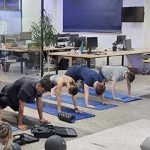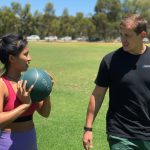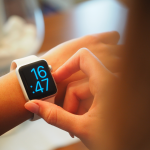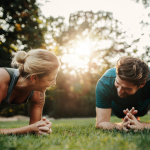Eating to optimize your exercise performance
Have you recently made and/or accomplished a goal to improve your fitness through personal training, sports or other forms of exercise? While is this a fantastic step towards a healthier and happier you, it is super important to consider your nutrition habits alongside your exercise.
There is ample evidence that good nutrition and exercise go hand in hand for a healthy lifestyle and that what you eat/drink is an important factor in the success of your exercise performance.
Eating the right amounts and kinds of foods prior to and post working out can help:
-
- Provide your body with enough energy, nutrients and hydration to optimize your exercise and allow you to get the most out of your training session
- Avoid any gut/stomach issues during or after your workout (including nausea, hunger pangs, etc.)
- Aid you in reaching your body composition goals (for example: muscle gain)
- Help your body recover more quickly post-workout
PRE-WORKOUT NUTRITION
When Should I Eat?
While this varies from person to person, ideally, fueling your body *2-4 hours before a workout with a balanced meal or a small snack in the 30 minutes-2 hours before a workout is:
- Generally well-tolerated
- Helps avoid stomach upset during exercise
- Provides the needed fuel your body needs for exercise
*As recommended by Sports Dietitians Australia1
What Should I Eat?
The ideal pre-workout snack (1-2 hours before exercise) should:
- Be rich in carbohydrates: Sugars are needed as fuel for your muscles
- Be lower in fibre: While fibre is necessary and beneficial at other times during the day, eating too much fibre just before working out can cause you to have an uncomfortable gut during your workout
- Be lower in fat: Fats take longer to digest than carbohydrates, and eating high-fat foods prior to working out can cause you to feel slower and lower in energy
- Be easy to digest and not feel heavy in your stomach
Try any of these delicious and well-balanced snacks 1-2 hours before your workout to optimize your performance:
- Overnight Oats: Oats (0.5-1cup) + low-fat milk or yoghurt + a small handful of your favourite fruits
- Rice Cakes/Toast and Nut Butter: Plain rice cakes/crackers OR a slice of toast + peanut/almond butter
- Banana Smoothie/Milkshake: Banana+ a little honey + low-fat yoghurt or milk
POST-WORKOUT NUTRITION
When Should I Eat?
Aim to eat and drink in the first *60-90 minutes after exercising to:
- Have optimal nutrition for muscle growth and repair (muscle synthesis)
- Refuel and rehydrate the body with the energy, water, and nutrients used up during exercise
- Keep up your energy and blood sugar levels to continue feeling good
*As recommended by Sports Dietitians Australia1
What Should I Eat?
The ideal post-workout meal/snack (ASAP within the first 60-90 minutes after exercise) should:
- Contain complex carbohydrates: Choose sources such as quinoa, brown rice, whole wheat bread/pasta/wraps etc. to help you replace your energy (and muscle fuel) stores.
- Contain protein: Choose high-protein foods such as fish, lean meat and poultry, cheese, beans/lentils, tofu, eggs, etc. to promote muscle growth and repair
- Contain fat and fibre: Choose healthy fat sources such as fatty fish, nuts and seeds, avocado, and high-fibre foods such as wholegrains, fruits and vegetables
Try any of these delicious and well-balanced snacks/meals after your workout to optimize your recovery:
- Tuna or chicken salad wrap: Wholegrain wrap + hummus + tuna or chicken + salad veggies+ avocado
- Spaghetti with lean beef: Wholegrain spaghetti (or any pasta of your choice) + Bolognese sauce with lean beef+ a side of any vegetables
- Muesli bowl: Muesli + handful of nuts/nut butter + yoghurt + fruits
What about Fluids?
- Ensure to remain well-hydrated (water, water, water!) throughout the day
- Avoid sugary beverages such as soft drinks, juices, cordials, energy drinks, etc.
- Avoid drinking large amounts of fluid just before your workout to avoid gut discomfort
- Have plenty of water immediately after your workout to replace fluid lost through sweating
- Depending on your nutrition goals, dairy-based fluids such as smoothies and milkshakes can be a convenient source of energy, protein, and electrolytes
Author:
Nishaat Patel
Accredited Practicing Dietitian
References












